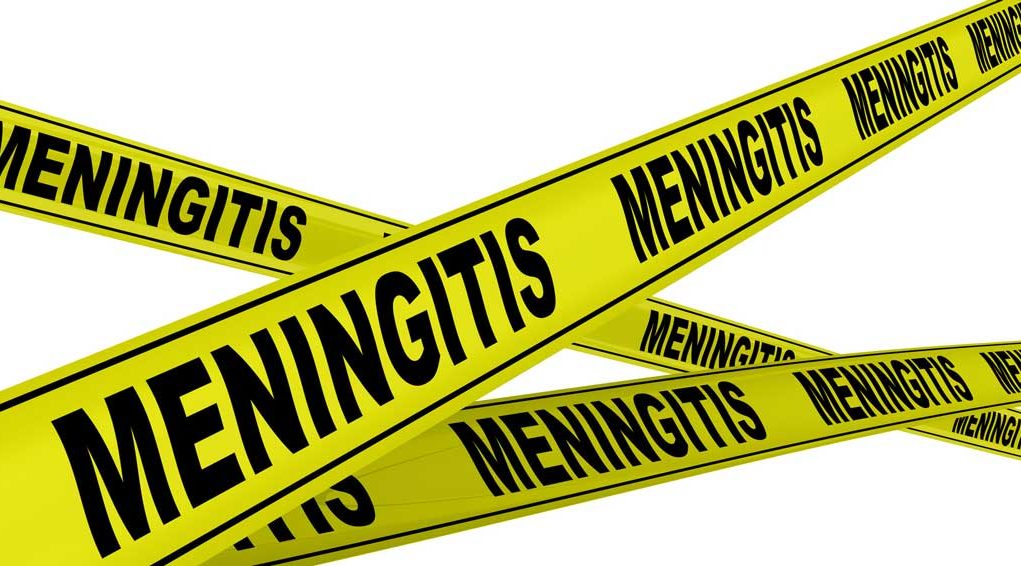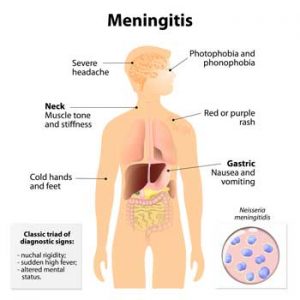#BCHealthNews. Some inside information for all those in Okanagan & area. There is a confirmed case of a very rare bacterial meningitis for a local 16 year old who is now in critical condition and fighting for her life in the Vancouver General hospital as well as 2 confirmed cases in the Oliver area. Vaccinations are urged by Interior Health.
Although the risk of getting this disease is low, we are advising anyone who may have been exposed to take the precaution of getting immunized,” said medical health officer Dr. Rakel Kling in a news release. “Meningococcal Disease is a serious infection and immunization is a proven and safe means of preventing illness.”
Meningitis is an inflammation of the membranes (meninges) surrounding your brain and spinal cord.
The swelling from meningitis typically triggers symptoms such as headache, fever and a stiff neck.
Most cases of meningitis in the U.S. are caused by a viral infection, but bacterial and fungal infections are other causes. Some cases of meningitis improve without treatment in a few weeks. Others can be life-threatening and require emergent antibiotic treatment.
Seek immediate medical care if you suspect that someone has meningitis. Early treatment of bacterial meningitis can prevent serious complications.
 Symptoms
Symptoms
Early meningitis symptoms may mimic the flu (influenza). Symptoms may develop over several hours or over a few days.
Possible signs and symptoms in anyone older than the age of 2 include:
- Sudden high fever
- Stiff neck
- Severe headache that seems different than normal
- Headache with nausea or vomiting
- Confusion or difficulty concentrating
- Seizures
- Sleepiness or difficulty waking
- Sensitivity to light
- No appetite or thirst
- Skin rash (sometimes, such as in meningococcal meningitis)
Signs in newborns
Newborns and infants may show these signs:
- High fever
- Constant crying
- Excessive sleepiness or irritability
- Inactivity or sluggishness
- Poor feeding
- A bulge in the soft spot on top of a baby’s head (fontanel)
- Stiffness in a baby’s body and neck
Infants with meningitis may be difficult to comfort, and may even cry harder when held.
When to see a doctor
Seek immediate medical care if you or someone in your family has meningitis symptoms, such as:
- Fever
- Severe, unrelenting headache
- Confusion
- Vomiting
- Stiff neck
Bacterial meningitis is serious, and can be fatal within days without prompt antibiotic treatment. Delayed treatment increases the risk of permanent brain damage or death.
It’s also important to talk to your doctor if a family member or someone you work with has meningitis. You may need to take medications to prevent getting the infection.
Causes
Viral infections are the most common cause of meningitis, followed by bacterial infections and, rarely, fungal infections. Because bacterial infections can be life-threatening, identifying the cause is essential.
Bacterial meningitis
Bacteria that enter the bloodstream and travel to the brain and spinal cord cause acute bacterial meningitis. But it can also occur when bacteria directly invade the meninges. This may be caused by an ear or sinus infection, a skull fracture, or, rarely, after some surgeries.
Several strains of bacteria can cause acute bacterial meningitis, most commonly:
- Streptococcus pneumoniae (pneumococcus). This bacterium is the most common cause of bacterial meningitis in infants, young children and adults in the United States. It more commonly causes pneumonia or ear or sinus infections. A vaccine can help prevent this infection.
- Neisseria meningitidis (meningococcus). This bacterium is another leading cause of bacterial meningitis. These bacteria commonly cause an upper respiratory infection but can cause meningococcal meningitis when they enter the bloodstream. This is a highly contagious infection that affects mainly teenagers and young adults. It may cause local epidemics in college dormitories, boarding schools and military bases. A vaccine can help prevent infection.
- Haemophilus influenzae (haemophilus). Haemophilus influenzae type b (Hib) bacterium was once the leading cause of bacterial meningitis in children. But new Hib vaccines have greatly reduced the number of cases of this type of meningitis.
- Listeria monocytogenes (listeria). These bacteria can be found in unpasteurized cheeses, hot dogs and luncheon meats. Pregnant women, newborns, older adults and people with weakened immune systems are most susceptible. Listeria can cross the placental barrier, and infections in late pregnancy may be fatal to the baby.
Please send this information to as many locals as possible in hopes that everyone understands the signs and symptoms



 Symptoms
Symptoms



